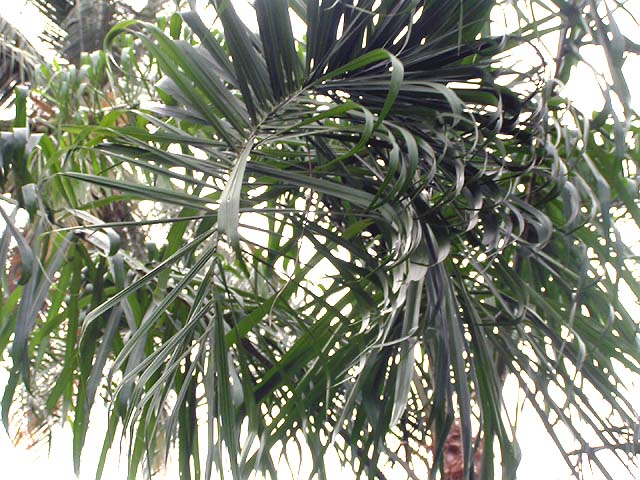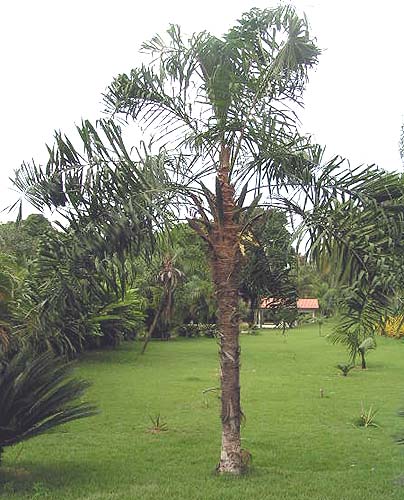Syagrus macrocarpa: Difference between revisions
From PACSOA Wiki
m (1 revision imported) |
No edit summary |
||
| Line 3: | Line 3: | ||
<div class="row"> | <div class="row"> | ||
<div class="small-0 large-5 columns"> | <div class="small-0 large-5 columns"> | ||
[[File: | [[File:Syagrus_macrocarpa04.jpg|frame|Figure 4. ''S. macrocarpa'' in habitat]] | ||
</div> | </div> | ||
<div class="small-0 large-7 columns"> | <div class="small-0 large-7 columns"> | ||
| Line 25: | Line 25: | ||
===General:=== | ===General:=== | ||
Becoming very rare in the wild, but not yet extinct | Becoming very rare in the wild, but not yet extinct. | ||
===Culture:=== | ===Culture:=== | ||
| Line 46: | Line 45: | ||
<div class="row"> | <div class="row"> | ||
<div class="small-0 large-6 columns"> | <div class="small-0 large-6 columns"> | ||
[[File: | [[File:Syagrus_macrocarpa.jpg|frame|Figure 1. ''S. macrocarpa'']] | ||
</div> | </div> | ||
</div> | </div> | ||
| Line 67: | Line 66: | ||
<p> | <p> | ||
[[Category:Syagrus|macrocarpa]] | [[Category:Syagrus|macrocarpa]] | ||
[[Category:Palm|Syagrus_macrocarpa]] | [[Category:Palm|Syagrus_macrocarpa]] | ||
Revision as of 13:43, 18 September 2024
| Welcome to the PACSOA Palms and Cycads wiki!
If you have any information about this species, please help by updating this article. Once you are registered you can contribute, change, or correct the text, and even add photos on this page. Click on the edit tab above and play around. Any mistake can be easily corrected, so don't be afraid. |
Synonymy:
Several (see the RBG Species List)
Common Names:
Maria Rosa Palm,
Maria-Rosa,
baba-de-boi-grande,
arioba.
Distribution & Habitat:
Atlantic coastal areas of south-eastern Brazil.
Description:
A very distinctive, slender, medium-sized palm to about 10m tall, with a crown of gracefully arching, plumose leaves with curly leaflets. It is similar to S. romanzoffiana, but far more elegant and gracefull.
General:
Becoming very rare in the wild, but not yet extinct.
Culture:
Sunny, well drained position. Apparantly as easier to grow as the ubiquitious Syagrus romanzoffiana, tolerating warm temperate thru to tropical conditions. However the seed is very difficult to germinate, with rates typically about 5%.
Contributed by:
Ricardo Assis Figure (1,2&3)
Gileno Machado (Figure 4)




